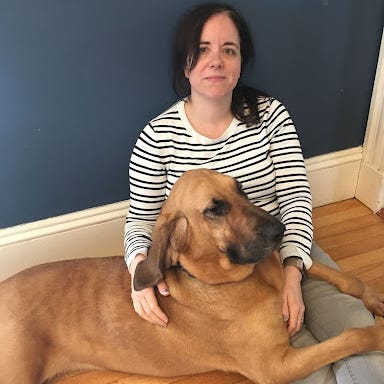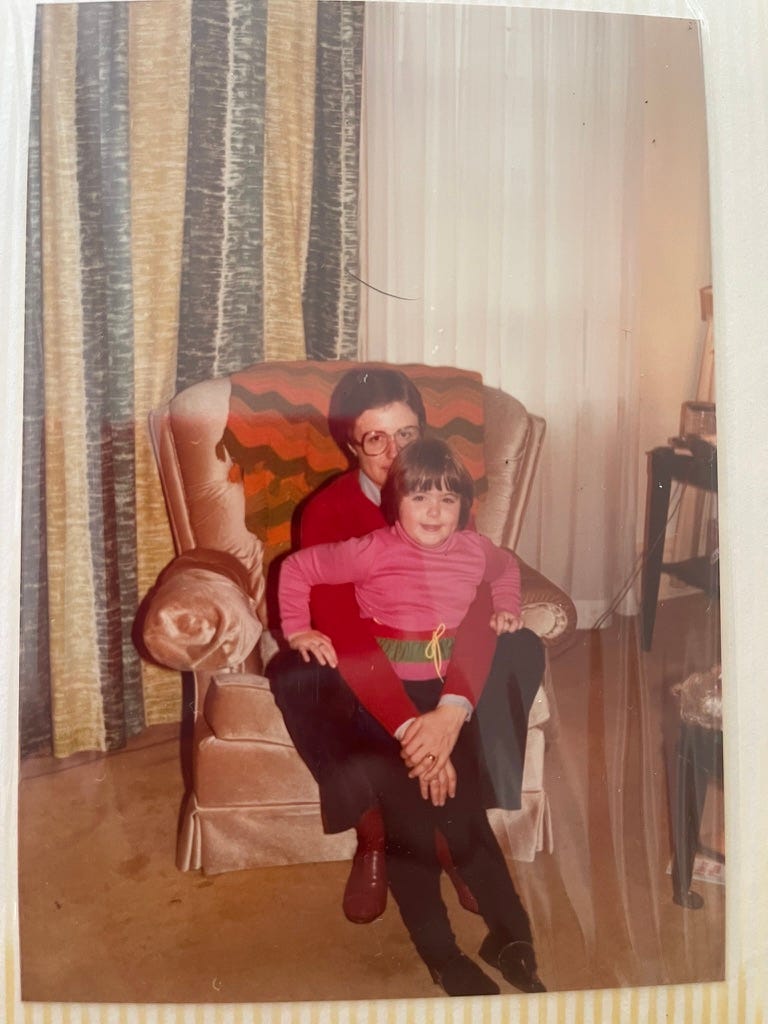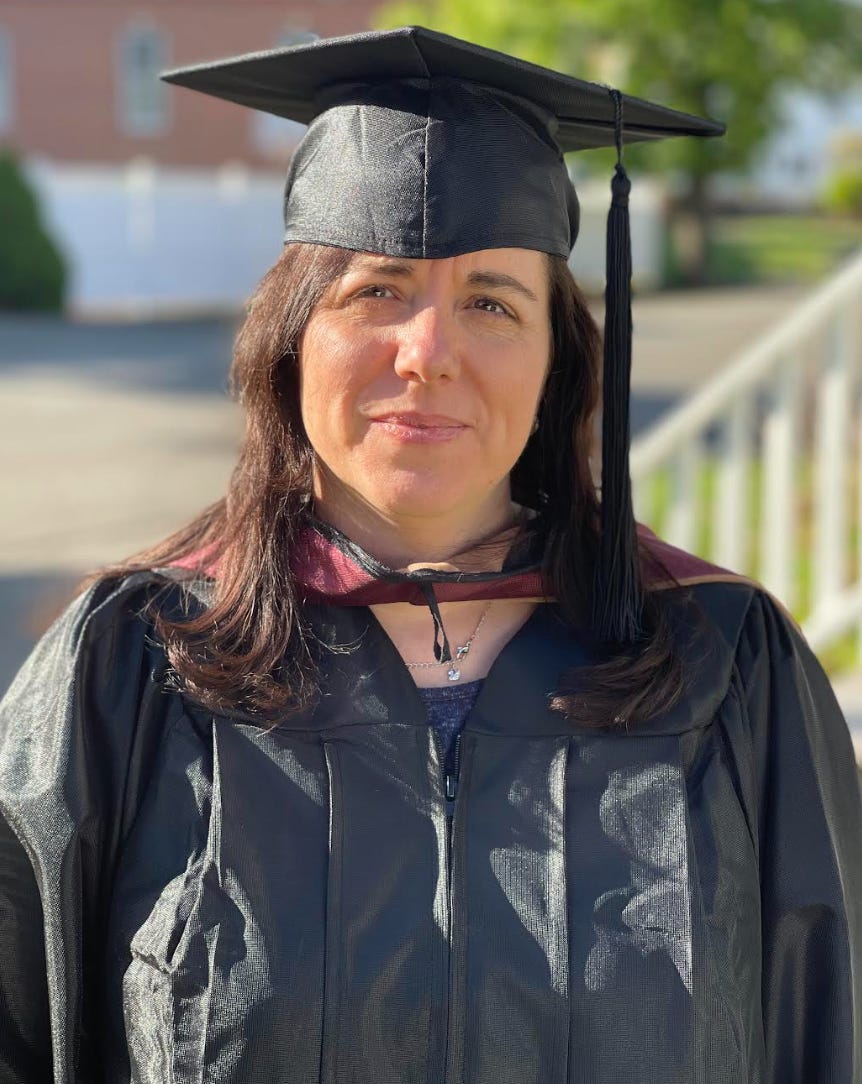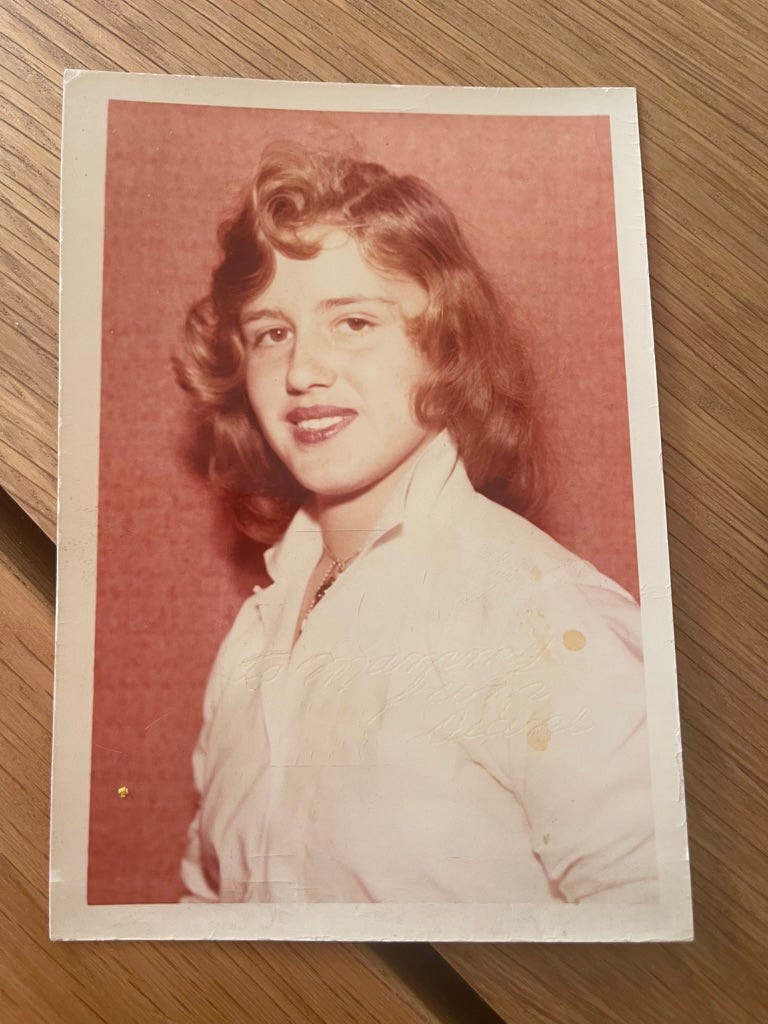Grief Will Find Its Way to the Light
Guest writer, Beth, lost her mom to cancer when she was a teenager, but it would be many years before she learned how to grieve.
Hi, it’s me.
While I continue my writing break, I’m excited to introduce you to my friend, Beth. We met here on Substack1 a couple of years ago, probably during one of the former online office hours events that I always looked forward to (if ya know, ya know).
Beth writes the newsletter, Beth’s TV & Film Recommendations, which I recommend for the juicy commentary on current watches as well as the occasional revisit of older movies and shows. She also wrote a novel called Clicking + Waiting that she released chapter by chapter through a newsletter of the same name. More on that in her story below!
I’ll be back in your inbox next week with a spooky cemetery story. 🎃
Be sure to give Beth lots of love in the comments!
Until next time,
Jen
Grief Will Find Its Way to the Light
By Beth Lisogorsky
The Backstory
When I was 16, my mom died from breast cancer. The loss left me with a profound sadness that I carried silently, unsure how to process my grief without therapy or guidance.
She was diagnosed when I was eight and had a radical mastectomy at the time, with no follow up radiation or chemo. This was the standard in the 1980s per the doctors, or maybe it’s the rationale my family uses to accept the lack of follow-up. Either way, it’s our narrative. My mother opted against reconstructive surgery, which I always thought was such a bad-ass choice. But at the same time, I flinched at the sight of those hollowed out, concave spaces crisscrossed with surgical scars–ghosts of her former breasts, and womanhood.
In retrospect, I wonder if my mother’s choice to forgo reconstructive surgery was tied to her selfless dedication to her children and the idea that it was wasteful to spend one second on something that was solely for her. I’m pretty sure she knew her time on this earth was limited. She once told me that she felt the cancer inside of her. Actually she told me that a lot and I often reassured her it wasn’t true.
(As if I could predict the future.)
Years later the cancer spread to her lungs, bones and finally, to her brain.
A Constant State of Motion
I didn’t do therapy after my mom died. I didn’t even know about it. This was the mid 90s. Instead, I finished high school with good grades and got into the “Ivy League” of public universities. I lived my life the way I thought honored my mom best—being studious, serious, and trying not to project any flaws. It eventually caught up with me when in my Junior year, I hit a breaking point and sunk into depression. I credit a good friend for breaking the cycle and getting me to embrace the world again. By Senior year I started to feel myself again—engaging in daily jogs with friends, laughing about films and boys and trying to to escape the downbeat of my Junior year.
Throughout my 20s, I kept moving, using work to distract me from feeling anything too painful. I threw myself into digital marketing for Fortune 100 companies, thriving in high-stress environments that kept my restless mind occupied. To myself and everyone else, I looked successful and embraced every opportunity.
I interviewed documentary filmmaker Andrew Jarecki (The Jinx, Capturing the Friedmans), and snagged a publishing deal based on my wildly popular online reviews of the first season of The Apprentice, or that reality show with Donald Trump. I’m dating myself here but I also wrote for Gawker Media on their Silicon Valley-focused rag appropriately titled, Valleywag, and was likely their oldest intern ever. I had a dating column for a while modeled after the successful original Sex & The City. I kept my mind fully busy at all times.
I craved the stress and chaos that allowed me to detour from deeper emotions that were lurking in the dark corners of my brain, until one of my chaos projects changed everything: I started writing a book. It’s a fictional, yet familiar story about a 30-something Jewish woman named Becca who’s failing at climbing the corporate ladder but finding her way with humor and friends.
Through this book, my mother found her way back into my life. The story became about self-love, romantic love, and healing—universal themes that allowed me to start healing as a fully formed adult. Writing it has been an incredibly therapeutic and blissful ride.
Becca's Story: A Mirror to My Own
This creative endeavor became a lifeline, channeling my frustrations and restless energy into a positive outlet. Unexpectedly, it unlocked all the emotions I'd been suppressing since I was a teenager. Through Becca, I was finally able to acknowledge my own loss and fragmented family. I wrote a story that felt most authentic to this character and discovered my own self-truths in the process. In writing Becca’s story, I realized how much of my own unresolved grief I had been carrying, and I stopped running from my emotions.
Rewriting My Story
Recognizing the need for change, I took several steps towards healing:
Went to therapy (unlocked some of my patterns and ways of being)
Quit my corporate job (not a prerequisite but helped me to identify what I needed since I was able to focus on myself)
Joined a writers' group
Found Substack :)
As I wrote Becca's story, I also rewrote my own. Creating her led me to discover my authentic self. This process has been incredibly therapeutic, allowing me to acknowledge my loss, explore family dynamics, and find ways to heal.
Through this journey, I've learned that embracing discomfort and facing our emotions head-on is essential for personal growth and healing. It's a challenging but rewarding path towards self-discovery.
More Like This
🌼 To read more guest writer stories—such as Melanie parenting through trauma, Elise reflecting on her divorce, Sara starting and ending a business, and more—head over here for the full guest writer archive.
🌼 Beth wrote about not going to therapy after her mom died. It was, after all, the 1990s and nobody talked about mental health. Here’s an essay I wrote about dropping out of college in the 1990s, due in part to undiagnosed depression, ADD, or both:
Substack is the tool I use to send you this newsletter, and where the archives of every issue are saved.









“…online office hours events that I always looked forward to (if ya know, ya know). “
Bring back Office Hours!!
Thank you for sharing your story, Beth! It resonates on a lot of different levels- losing a parent early…going back to school later in life…being an unpaid Uber driver (which I assume meant driving kids around)…writing as therapy…all of it.